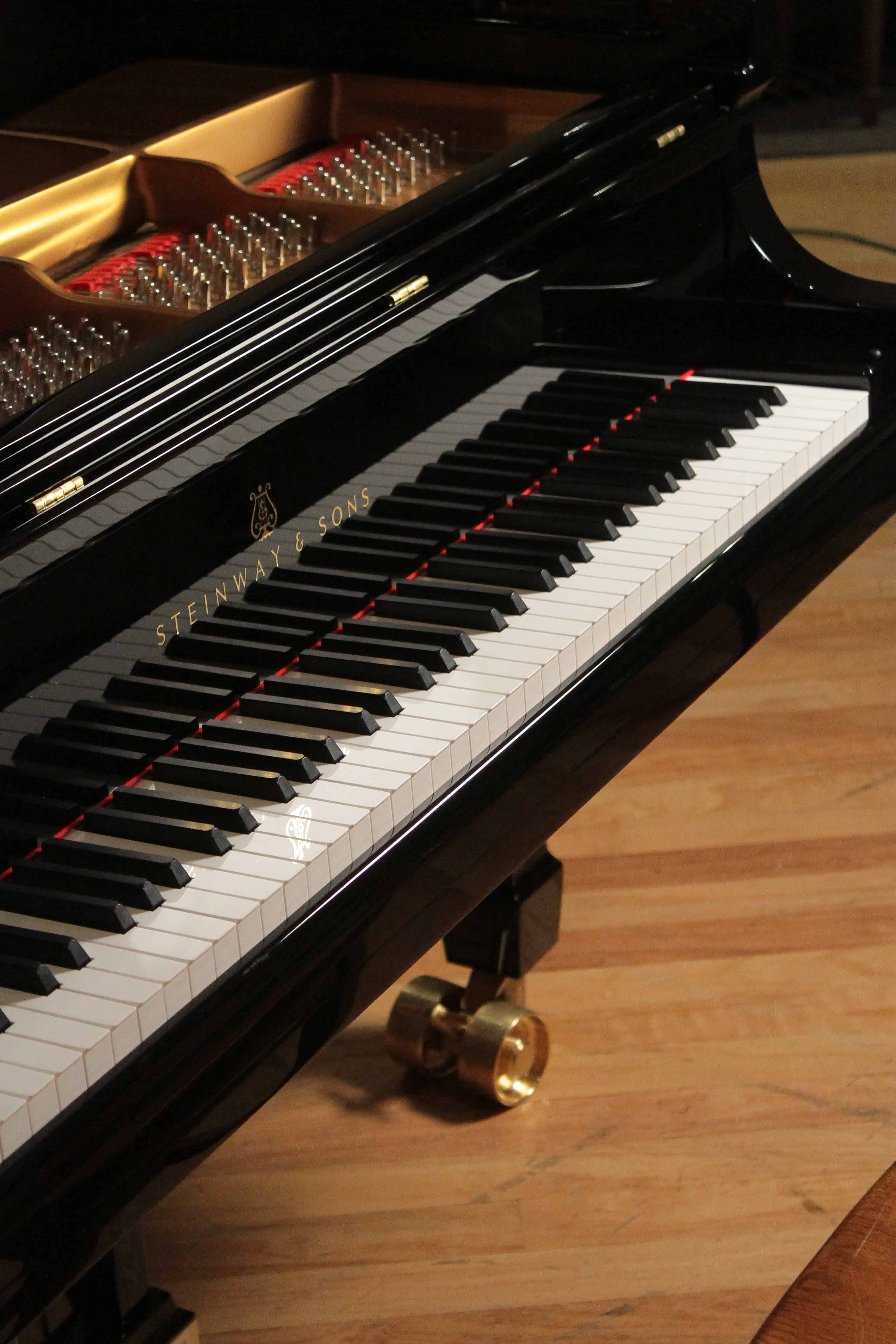Learn More with Regularly Updated Videos and News
These clips and articles will give you a look at how we teach and the results we can achieve with your student.
Videos & News
How to Interview for College
So you’ve survived three-plus years at high school taking grueling classes. You’ve jumped the hurdle of standardized testing. You’ve sent in your application to your college or university. So far, so good. You’ve arrived at the interview part of the application process for your elite school. Now they want to talk to you in person.
It might not feel like it, but getting an interview is a great problem to have. It means the college likes you. But the idea of meeting and speaking with (gasp!) a stranger is pretty terrifying for most students, if not most people. If you’ve never had an interview, or even if you have and you want to perfect the craft of interviewing, here are some tips.
1. Water only
When you walk into just about any interview, someone is going to offer you something to drink. It’s totally fine, and pretty much expected, for you to ask for water. You’re going to be talking, maybe for an extended amount of time. Ask for water. Enjoy. But if you are smart, ask for NOTHING ELSE.
If you ask, for instance, for a coffee, now someone has to go make it. Believe me, I once worked in Hollywood as an intern, so a lot of the time, I was that someone. If an interviewee comes in and asks for that coffee, should it be strong or weak? Cream and sugar? Now that I own a small business, I conduct interviews all the time. I had a job candidate order a meal once. He got the meal. He did not get the job.
Other than inconveniencing your host, the real reason that you should restrict yourself to water is that you might spill. I enjoy a good cup of coffee as much as anyone, but I once made the mistake of spilling a huge cup of coffee all over a client during a meeting. If you ruin someone’s clothes or carpet, it’s a pretty safe bet you’ll be memorable, but not in a good way. Even if you spill the water, no harm, no foul.
2. Shake hands firmly
It might sound strange, but many interviewers will interpret a firm handshake to mean that you have confidence in yourself and you believe you are a good candidate for the job. If a handshake feels like a floppy dead fish, it can be very off-putting. When you meet someone new, give her a firm handshake with at least two pumps. I know it sounds weird, but trust me it’s important. However…
3. Only shake hands if the other person initiates
Your interviewer doesn’t want your cold. In fact, a lot of people that have to meet strangers all the time and are forced to shake hands are secret germaphobes. Some celebrities are even vocal about their desire to not be touched by fans. I don’t blame them. When people feel like they have a right to touch you, even if it’s only hands, it can feel overwhelming and intrusive. Only go in for a handshake if the person extends his hand to do so. He might be trying to save you from his cold too.
4. Be fifteen minutes early
Once upon a time, Jason Kidd was the most experienced player for Team USA in the Olympics, and the coaches used him as role model for the team. The very first time he addressed his peers on the team, which included LeBron and a lineup of superstars, he asked them to be on time. That kind of blew me away when I heard it, but it really shouldn’t have.
This should go without saying, but show up early to your interview. Fifteen minutes leaves you time to park or find the building or use the bathroom or whatever. If you arrive early with nothing to do, great. You can relax and enjoy some quality time with your phone.
But lateness… lateness almost always shows that a candidate doesn’t take the job (or themselves) very seriously. An interview is supposed to be an important first impression, so it’s easy to extrapolate that if you’re late to this important interview, you’re going to be late for everything. If I were meeting Tom Cruise, I’d be on time - early, in fact, with my Top Gun poster and a Sharpie, ready for an autograph opportunity. So why can’t you show up on time for a meeting you claim to want? If lateness is a problem for you, start dealing with it right now at this moment. Be on time.
5. Send a “thank you,” but don’t overdo it
Thank you notes used to be handwritten, but these days a simple email does the trick. It doesn’t need to be much, but a quick follow-up that says, “It was nice to meet you,” can go a long way. It shows that you’re thoughtful and you cared about the meeting. If someone gets in touch with you with a question, or you just had an interview, don’t wait more than a day to send a short email. And then leave it at that. Any more and you risk possibly irritating the person you want to impress. Unless you have a burning question you absolutely need answered and you can’t find the info anywhere else (check the internet first), a simple note works great to express that you’re interested, but it doesn’t sound needy or desperate.
Good Luck!
How to Find a Piano Teacher for Your Child
You might be thinking it’s time to have your child start taking piano lessons. Learning piano is a rite of passage for many children. But how do you even begin to find an instructor? More importantly, how do you find the right instructor for your child? Here are some tips that should come in handy.
- Find someone your child connects with. Early music lessons can shape how a child looks at learning an instrument. A negative experience can create resentment and give a child a negative attitude toward music in general. Your student should look forward to seeing his or her teacher every week. For some kids, this can take a little time, but for young beginners, it is important or they won’t want to keep having lessons.
- Make sure the teacher balances technical skills AND fun. So your child likes her teacher. That’s great! Now a caveat: not every single part of learning music is always fun. There is a need for discipline and a tolerance for frustration, so balance is key. Make sure the instructor is not only making the lessons fun, but also is teaching your child technical skills and theory. Sometimes the latter can be a little dry, but the right instructor can make it interesting or even teach these aspects in fun ways.
- Check to see if the teacher offers performance opportunities. Not every student wants to play in a recital, and that’s okay. But it should be an option. Students grow so much by performing. Playing in front of an audience requires overcoming nerves, working towards a goal, and having the discipline to perfect a piece. The recital experience is also about getting to hear other kids play (or sing - our shows expose students to other instruments too). Students are inspired by their peers’ performances at every recital. I always have students ask to learn new songs or inquire about a new instrument after the recitals. These shows really are invaluable experiences for students that lead to growth not only as musicians, but also as human beings.
- Don’t audition teacher after teacher to find the perfect match. This only confuses your child. Putting your student through numerous first lessons with different instructors can be a big waste of time and may sour a student’s overall interest in learning music. Instead, pick an instructor who you believe would be a good fit and have a lesson. If you don’t feel like your student connects with a teacher, then move on. If you like a teacher, have a few lessons to see how things go. But DON’T try teacher after teacher thinking that there might be someone better just around the corner. If your child enjoys the lesson, you feel comfortable with the instructor, and the teacher connects with your student, go ahead and book lessons weekly. Many instructors (and we here at Take Note) do not require semester commitments, but be sure to check first. With some time, effort, and practice, your student will be playing Mozart in no time.
If you live in NYC and are looking for a great piano instructor, contact us at info@takenotelessons.com. We would love to help find a great match for your family!
How to Write a Personal Statement for College or Grad School
Yale’s website, I think, gives a powerful insight into the admissions process. Not only does it explain some of things colleges are looking for, but it also makes a bit of a shocking admission. Yale believes that three-quarters of its applicants, assuming Yale could accept all 22,000 students, could complete the course work and go on to graduate. They accept only 2000. Think about that for a moment!
That means that a huge number of students have the GPA, activities, and SAT scores that Yale requires. What it also means is that there are far too few spots for too many qualified students.
This is where the essays become very important.
They can make or break your application. The personal statement and, if applicable, supplemental college essays are a vital part of any college or graduate school application. Typically, the more elite the school, the more important the essay is to the overall score an application receives. Writing about you can be a scary and anxious task for any writer, let alone a high school student who has had almost no experience doing just that. In fact, this may be the first personal essay a student has written in a long time or maybe ever; high school tends to focus on other styles of writing. Here are some handy do’s and don’ts for you.
DON’T: Get too weird with it. It shouldn’t be a poem, a play, an acrostic made out of the letters of your name, or really anything other than an essay. Although the application should give you plenty freedom by offering you different options to write about, it still needs to be an essay. In the movie Legally Blonde, the protagonist, Elle, applies using a resume printed on pink paper. It’s hilarious because no one, NO ONE, would ever do that and get hired. Great movie, but don’t be Elle.
DO: Follow traditional writing conventions. It should have an intro and a conclusion and make your English teacher proud. Try not to stray too far from form.
DON’T: Have someone write it for you. Sounds tempting, right? I’ve had plenty of students contact me and ask about this. (I always say no!) I’ve seen essays written by siblings and parents get sent in, and I’ve witnessed students pull essays off the web to apply. It never works.
DO: Use personal voice and show character. Writing about you is a scary task, even for the most experienced writer. High school doesn’t ask students to do this very often either. Think carefully and try to do some introspection.
Need help with your essay? Contact us at info@takenotelessons.com
Flats
Flat is a common musical term, but what does it really mean? Michelle, co-founder of Take Note, explains flats in music.
January 2019 Newsletter
September 2018 Newsletter
June 2018 Newsletter
January 2018 Newsletter
Like What You See?
If so, it’s easy to learn more. Visit our Academic Coaching, Music Lesson, or Online Coaching pages for more information. Or if you’re ready to get started, send us an email using the form below, or schedule a free phone call with one of our education specialists. We’ll discuss your student’s needs, availability, and location so we can match you with one of our excellent instructors.







